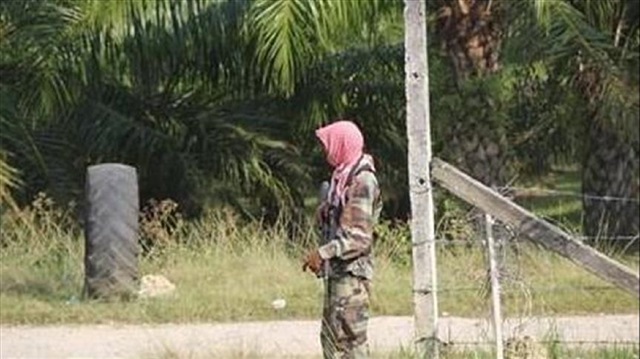
File Photo
Philippine President Rodrigo Duterte said Thursday talking peace with the communist rebels is not good for the country, stressing that he will not be pursuing peace talks with them for the rest of his term.
The President's comment came as he installed his former Presidential Security Group chief, Major General Rolando Bautista, as the new head of the Philippine Army, replacing Lt. General Glorioso Miranda who retired.
Mr Duterte argued that there’s no use engaging the National Democratic Front (NDF) in peace negotiations because it would not be beneficial to the country.
“Maybe, it would take some time. Maybe another President can do it," Manila Times quoted Duterte as saying in a speech at the Philippine Army's 58th change of command between Bautista and Miranda at Fort Bonifacio, Taguig City.
"We're fighting the New People's Army. At this stage, I'm not ready... If it is good for the country, I'm okay with it. But for now, I don't like it," added the president.
The President also hinted: "You know, we have been at odds for 50 years. I used to listen to Sidon (Communist Party of the Philippines chairman Jose Maria Sison). Of course, you have ideals on what the world to be. But when you get older, you would know that this is not really possible, that life is unfair."
On Wednesday, October 4, Mr. Duterte said that the left including NPA, the armed wing of the National Democratic Front and the umbrella group of all communist organizations in the country said that the left and the "yellow," the term used to refer to the Liberal Party and the previous administration, had joined forces to remove him from Malacañang.
The communist rebels, however, denied any alliance with the Liberal Party and others in the political opposition but said they recognize their initiatives and action as serving the same purpose of resisting what they called the “tyranny” of Duterte.
In August of this year, government peace negotiating panel said that the peace talks between the government and the NDF were definitely over, considering the threat of the NDF to intensify operations against the government in protest of the five-month extension of martial law in Mindanao and the July 19 ambush of two Presidential Security Group convoys.
In September, however, President Duterte said that he was open to resuming peace talks, provided the communists declared a ceasefire, before backtracking again on Thursday.
The Duterte administration initially released 19 NDF consultants as a show of good faith, but the Solicitor General called for their arrest after the termination of the peace talks between the government and the communist rebels.
The CPP was founded in 1968, and its armed wing, the NPA, was founded in the following year. Since then the communist rebel group has been responsible for the attacks against state troops, arson and extortion activities to overthrow the Philippine government in favor of a new state led by the working class and to expel United States influence from the country.
#Philippines
#Zamboanga
7 years ago














